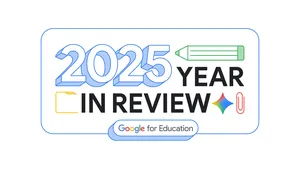Meet features help engage students and moderate classes

This year, as educators conducted class remotely, the equivalent of over 1,300 years of learning took place each day on Google Meet. With more than 140 million educators and students now using G Suite for Education worldwide to create, collaborate and communicate, many more schools and educators are using Meet to stay connected. We’re excited to share some Meet features that will be launching later this year to help educators improve moderation and engagement in remote or hybrid learning environments.
Increasing control of your meetings
As always, our first priority is keeping meetings safe and secure. New moderation features for G Suite for Education and G Suite Enterprise for Education users will give educators more control over how to run their virtual classes. All these features will be rolling out later this year.
First off, we’re making it easier to manage meeting attendees. When someone asks to join a meeting (or “knocks”), they won’t be able to knock again after being ejected from a meeting, and a knock will no longer show up after a moderator rejects it twice. Plus, we’re updating the knocking interface to make knocks less intrusive for educators. Moderators will also be able to end the meeting for all participants, ensuring no students linger after the teacher has left. And we’ll soon block anonymous attendees from joining any Education meetings by default, though schools will be able to opt-in to allow anonymous participants.
To help students and educators feel more comfortable while on video from their homes, we will enable them to blur out their surroundings or replace their background, with presets or uploaded images (with admin controls to disable this functionality).
Mock is subject to change: Replace your background with an image

Later this year, we’ll release additional moderation features to give educators full control of their meetings, such as the ability to mute all participants at the same time, disable in-meeting chat for participants, and restrict who can present. We’ll also provide a setting that requires that the moderator join before the meeting can begin. You'll hear more from us on these new features in the coming months.
Creating engaging virtual classes
As many educators learned this year, it can be hard to meaningfully engage students when classes are conducted remotely. The following Meet features, launching later this year, will give educators more tools to boost interactivity with their students.
For all G Suite for Education and G Suite Enterprise for Education users, we’re releasing a hand raising feature to make meetings flow more smoothly and an integrated collaborative whiteboard to help teachers and students share their ideas more naturally. In addition, a larger tiled view will allow you to display up to 49 participants at once. We’re also launching closed captions in additional languages to make lessons more accessible.
Mock is subject to change: Raise your hand in a class meeting to signal you want to share

Mock is subject to change: Whiteboard from anywhere with Jamboard integration in Meet

For G Suite Enterprise for Education customers, we’re also releasing several premium features: attendance tracking to provide a record of which students joined the class, breakout rooms so educators can split classes into smaller groups, Q&A to provide a way for students to ask questions without disrupting the flow of the class discussion or lesson, and polling to engage students to share their voice. If your school is interested in using these enterprise video capabilities in Meet, you can contact a G Suite Enterprise for Education specialist today.
We're committed to building helpful tools that allow educators and students to keep teaching and learning - no matter where they are. To learn how to share feedback on where we can continue to improve, head over to our Meet Help Center. And stay tuned over the next few months as these features roll out.






